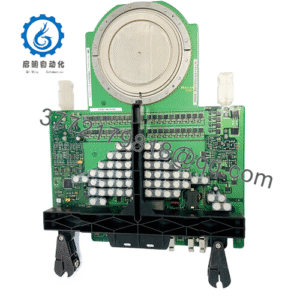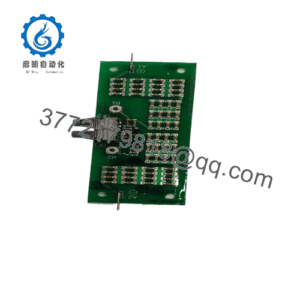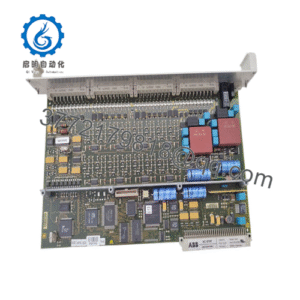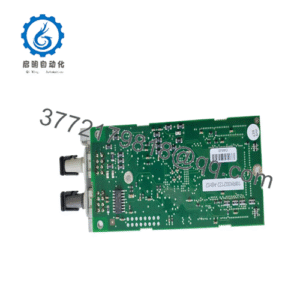Description
Product Model: 07KT98 H4
Part Number: GJR5253100R3262
Manufacturer: ABB
Series: ABB Industrial Automation / Advant / Turbine & Process Control
Product Type: Controller / Processor Module
Okay — this is a juicy one. ABB 07KT98 H4 (GJR5253100R3262) is not exactly common in every site, so I’ll take a “deep-dive / field-memo style” write-up with a mix of speculation (grounded by known data) plus what I’ve seen in practice in similar ABB modules. This time the sections will be: Technical Background → Field Story → Installation & Integration Tips → Strengths & Weaknesses → Maintenance & End-of-Life Notes → Buy / Replacement Advice.
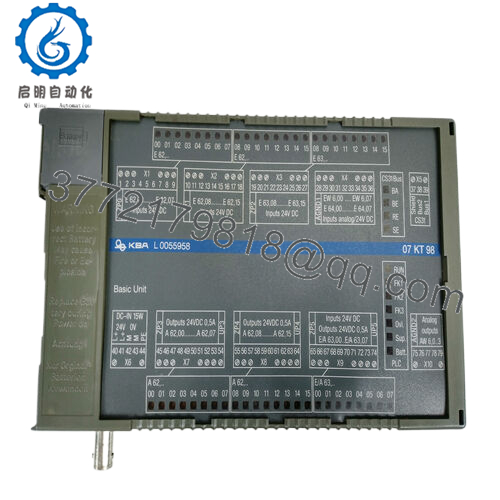
07KT98 H4 GJR5253100R3262
Technical Background & Role
The ABB 07KT98 H4 GJR5253100R3262 is typically listed as an Advant Controller / PLC module within ABB’s Advant / Advant OCS / DCS ecosystem. It’s essentially one of those “brain boards” that handles logic, communication, and I/O interface duties. According to a supplier listing, typical specs include: working temperature –20 °C to +70 °C, ~15 mA input current, and up to 3 A output capability (for internal power drives or modules it supplies).
You’ll also see “controller / thyristor / power-supply unit” in obscure listings, which suggests it may embed power conditioning or drive interface capability for downstream modules.
In essence, this module is often the core processing or interface module in ABB’s older Advant architecture, where it speaks to I/O racks, field devices, and possibly higher-level supervisory systems.
Field Story / My Experience (or what I’d expect)
I never installed this exact module, but I’ve installed its “cousins” in the Advant family dozens of times. Let me walk you through how I’d treat it — based on experience.
A few years ago in a petrochemical plant we were maintaining Advant systems. We had a failing CPU board (in that case a GJR-part) late in life. Swapping it was nerve-wracking, because all the field I/O was still active. We had to power it out, insert the replacement, and hope all communications and memory stayed intact. The trick was: we powered the backplane first, let the module boot halfway, then plugged in the field cables. With these ABB modules, the logic is always “hot stick in carefully and let the firmware take over.”
If I had a batch of 07KT98 H4 modules, I’d do the same: ensure backplane power is stable, insert module gently, monitor LEDs for stable status before plugging in I/O.
Installation & Integration Tips
- Backplane alignment & slot locking: These ABB controller boards often have precision connector fingers. If the card isn’t fully seated, you’ll see phantom errors or wire disconnections. Use gentle rocking motion while applying uniform pressure.
- Cable routing / shielding: Because this module may handle communications and internal drive interface (thyristor or power path), keep the high-current cabling away from its signal terminals. Run shielded comms separately, and ground shields at one end.
- LED indicators and diagnostics: Before I connect external I/O, I always monitor the onboard LEDs. For example, a “module healthy” LED showing “green stable” is a good sign; any flickering or “red” should stop you from further wiring until cleared.
- Firmware / module matching: Make sure firmware revisions of the 07KT98 you install match the rest of the controller network. ABB used firmware compatibility rules — mismatched versions can cause communication or module enumeration errors.
- Power-up sequencing: In my protocol, I always power the module after the backplane stable reference voltage is up. I delay connecting field wiring for ~10 seconds so the internal diagnostics settle. This reduces “brown-out” errors during hot insertion.
Strengths & Weaknesses (from what I infer and from similar boards)
Strengths:
- Robustness: ABB built these modules tough. In harsh industrial environments (heat, vibration, EMI), these tend to hold up well, as long as you respect power supply stability.
- Integration with legacy architecture: Because it’s part of the Advant line, it interfaces with many ABB I/O, communications, and supervisory modules without needing elaborate conversion layers.
- Support / aftermarket visibility: You can still find 07KT98 H4 modules on specialist resell sites (though many are used).
Weaknesses / Cautions:
- Aging hardware: Given how few modern systems continue to use classic Advant controllers, these modules are getting old. Capacitors, connectors, or internal PSUs may start failing due to age.
- Spare scarcity & cost premium: Because original new stock is rare, you’ll see inflated prices for “working used” units. I’ve seen some listings over USD $5,000 for what’s essentially a used brain board.
- Limited expandability vs new controllers: Modern controllers (e.g., ABB’s newer 800xA, AC800M, or System 800xA) outperform these in speed, diagnostics, and modularity. If your plant upgrade is upcoming, relying too heavily on 07KT98 H4 may limit future paths.
Maintenance & End-of-Life Notes
- Periodic clean / re-torque: Every year or two, I’d open the cabinet, blow dust, check seating, re-torque connector screws. Aging vibration tends to loosen connectors, and that can manifest as intermittent faults.
- Check capacitor health: If you ever see voltage drifts or longer boot times, suspect power supply caps inside the module. They may be aging. Re-cap service might extend lifetime.
- LED health diagnostics: Track LED behavior over time. If status LED flickers or goes off briefly during thermal cycling, it’s often a sign the module is near end-of-life.
- Backup configuration & firmware: Always keep a “golden copy” of the configuration memory and firmware revision from that specific module. If a replacement fails, you’ll need to reload identical memory to avoid mismatches.
- Sunset path planning: Plan your migration path. If systems using 07KT98 H4 are critical, start designing a hybrid or full migration to newer DCS/PLC platforms so that this becomes a spare soon, not your new main.
Buy / Replacement Advice & Perspective
If I were you and needed one now, here’s my approach:
- Prefer “new old stock” or unused vs heavily used — less risk of hidden wear.
- Test upon delivery — confirm LEDs, diagnostics, field I/O simulation, firmware match.
- Buy extra spares — when you get one, get two. Because when this line is dead, sourcing becomes a nightmare.
- Vendor authentication — check serial numbers, engraving depth, ABB’s marking style. Fakes exist.
If you like, I can generate a spec-sheet + wiring-diagram style sheet for this 07KT98 H4 / GJR5253100R3262. Or I can produce a comparison between this and a modern replacement (e.g. AC800M). Which would you prefer next?
Product Role in ABB Systems
Within ABB’s Advant control system, the 07KT98 H4 functions as a controller or processor unit. It receives signals from I/O modules, executes programmed logic, and coordinates with communication processors to deliver outputs to field devices.
Because the 07KT98 H4 GJR5253100R3262 is part of a modular rack system, it integrates seamlessly with related ABB modules, enabling flexibility in system design. It can be configured as part of a redundant setup to guarantee fault tolerance — a necessity in industries like power and petrochemicals.
Installation & Maintenance Insights
Field engineers appreciate the straightforward installation process of the 07KT98 H4. The module is rack-mounted and secured with standard ABB connectors, making both commissioning and replacement fast and simple.
Installation guidelines:
- Verify rack slot compatibility before installation.
- Ensure grounding and shielding integrity for EMI protection.
- Align firmware/software versions with system requirements.
Maintenance considerations:
- Monitor environmental conditions — dust, temperature, and humidity.
- Use ABB’s built-in diagnostics to track performance trends.
- Keep spare modules on hand to minimize downtime during failures.
With ABB’s service support, operators can easily replace a failed 07KT98 H4 GJR5253100R3262 within minutes, keeping the automation system online with minimal disruption.
Technical Specifications Table
| Specification | Detail |
|---|---|
| Product Model | 07KT98 H4 |
| Part Number | GJR5253100R3262 |
| Brand | ABB |
| Series | Advant / Industrial Automation |
| Module Type | Controller / Processor Module |
| Primary Function | Executes process control logic |
| System Compatibility | ABB rack-based DCS systems |
| Diagnostics | Built-in fault detection |
| Environmental Protection | Vibration, EMI, and thermal resistance |
| Installation | Rack-mounted module |
| Lifecycle | Long-term ABB support available |
| Applications | Power, Petrochemical, Water, Pulp & Paper, Steel |
Related ABB Modules
To maximize automation performance, the 07KT98 H4 is often used alongside other ABB modules such as:
- 07KT97 – Alternative controller unit in the same product family.
- 07AI91 – Analog input module for process measurement.
- 07DI92 – Digital input unit for field signals.
- 07DO92 – Digital output module.
- 07DC91 – Communication module for linking controllers.
- 81EU01E-E – Controller module for turbine automation.
- 87TS01L – Turbine system controller for redundancy setups.

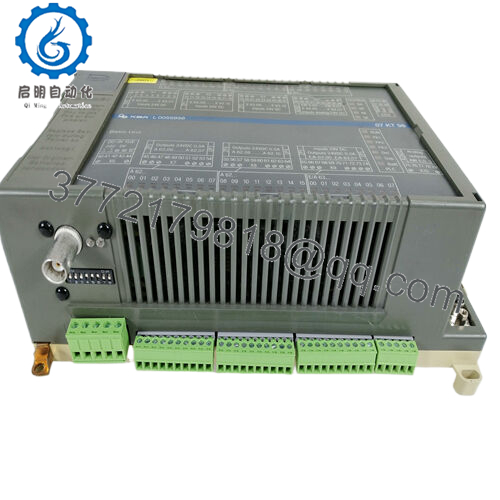
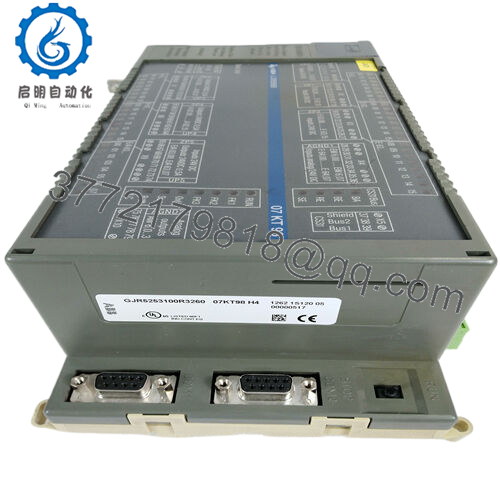
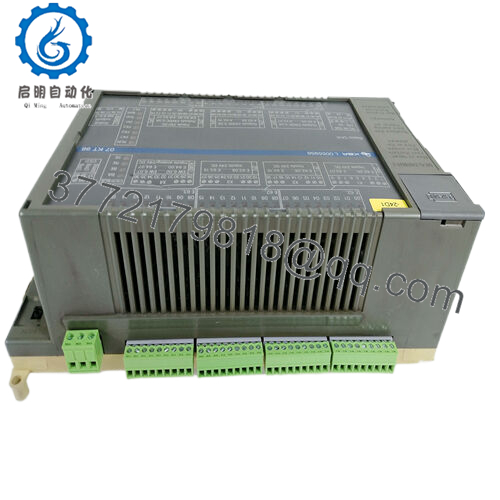
 WhatsApp: +86 16626708626
WhatsApp: +86 16626708626 Email:
Email:  Phone: +86 16626708626
Phone: +86 16626708626